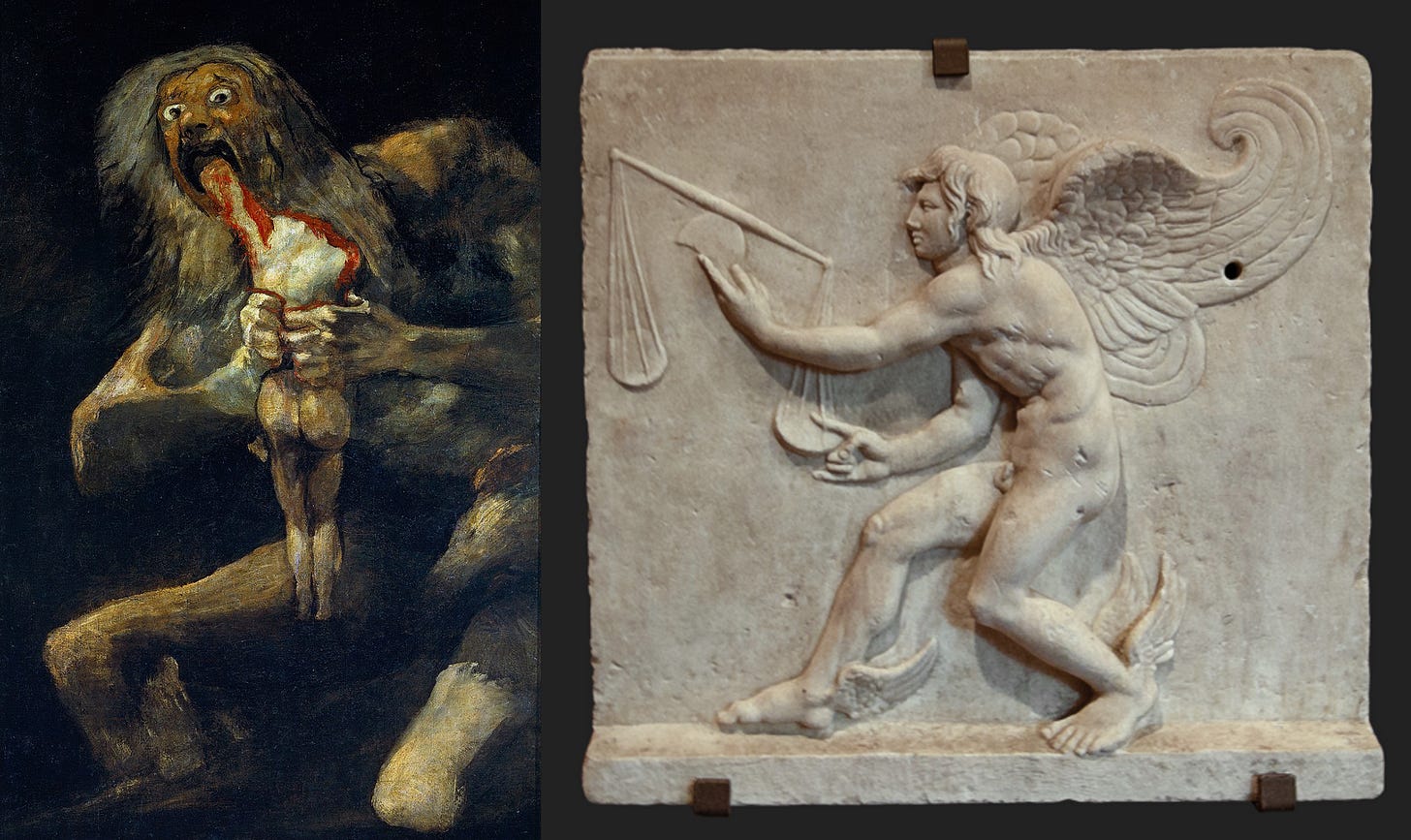17 February 2022
Chronos and Kairos
The Ancient Greeks had two concepts for time: Chronos and Kairos. Chronos is quantitative, purpose-driven, and marked by hours and minutes, and Kairos is qualitative, having no measure or agenda. No surprise, but Chronos was portrayed as stodgy and evil, whereas Kairos was romantic, pure, and beautiful.

Long workdays (or weeks or months) leave us feeling drained and miserable—we’re hyperaware of Chronos’s downsides in the age of Zoom Fatigue. But a surplus of Kairos doesn’t feel good either. Two nights in Vegas is fine, but three nights can leave us overstimulated and driftless (or so I hear, I’ll soon be in Vegas for a three-day/three-night conference to see for myself).
How could we balance Chronos and Kairos in the modern world? Is it as simple as observing the sanctity of existing schedules?
- Daily. Whether hourly or salary, most work comes prepackaged with “working hours.” Could Chronos end at 5 PM each day?
- Weekly. Could we leave our weekends unscheduled?
- Annual. Could vacations and holidays, if left open, yield ripe Kairos opportunities?
Like natural sleep, Kairos cannot be planned or forced—it just occurs. But, like allowing yourself sufficient time in bed each night, you increase the chance of it happening. You might drift off…
…until the screaming alarm of Chronos yanks you back.